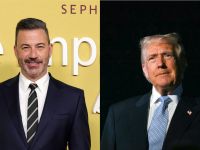Former Soviet leader Mikhail Gorbachev on Monday called on US President-elect George W. Bush to put future US relations with Europe on equal footing and abandon the notion that the United States won the Cold War.
In the editorial published in Monday's Washington Post, Gorbachev, writing from Moscow as the president of the international Gorbachev Foundation, said he hoped the president-elect "will give up any illusion that the 21st century can, or even should, be the 'American century'."
"Globalization is a given - but "American globalization" would be a mistake," Gorbachev said, calling the current US situation, with the country enjoying unprecedented -- and internationally unparalleled -- largesse, unsustainable over the long run.
"For 10 years, US foreign policy has been formulated as if it were the policy of a victor in war, the Cold War," he wrote. "But at the highest reaches of US policy-making no one has grasped the fact that this could not be the basis for formulating post-Cold War policy."
Gorbachev pointed to the eastward expansion of NATO, the handling of the conflicts in the former Yugoslavia and the "utterly extravagant" anti-missile National Missile Defense system as examples of the United States' failure at "world governance."
Gorbachev urged Bush to suspend US policy of treating Europe as a junior partner and to take advantage of Europe's experience "including the bitter elements of it" to build a genuine, "equal-to-equal partnership."
In terms of future relations with Russia, Gorbachev expressed concern because of the "unclear" and "not encouraging" agenda Bush set forth during his electoral campaign.
"To build a new world order and further European unity, we have to recognize that that will not be possible without an active role on the part of Russia," Gorbachev wrote.
"The world is complicated," Gorbachev concluded. "It contains and expresses a variety of interests and cultures. Sooner or later, international policy, including that of the United States, will have to come to terms with that variety." -- WASHINGTON (AFP)
© 2000 Al Bawaba (www.albawaba.com)







